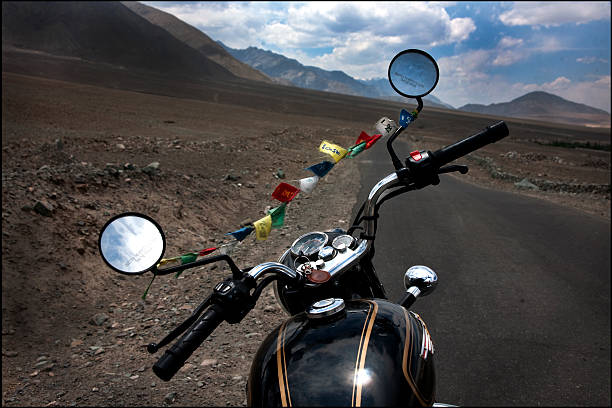When we first learned how to ride the bike, the first things we were taught were the throttle and brake on a motorcycle. We know that for speeding up, you have to roll the bike’s throttle grip towards yourself. However, to decrease the speed or slow down, one has to roll their bike’s throttle away from themselves. This is the correct way of using both the brake and the throttle, but is that all?
Here are some of the best ways of making the best use of both the controls and ensuring a safe ride while doing so.
Understanding the Safe Ways of Using a Throttle and Brake on a Motorcycle
Both throttle and brakes are essential components of a bike. Here is a compilation of all the best ways of ensuring the proper use of throttle and brakes on a bike.
Using the Motorcycle Brakes
Keep reading to learn about the age-old methods of using brakes on a bike like a professional biker. The bike’s brake performance is determined by the road surface analysis. It is the handlebar grip for the bike between the road surface and the tire. So take the environmental conditions into account when you think of applying the brakes.
Use the Front Brakes for Sudden Stop
The front brakes are an integral aspect of the braking system. Use the front brakes when you have to put a sudden stop instead of the rear brakes, owing to their better efficiency.
Use Both Rear and Front Brakes to Slow Down your Bike Gradually
Owing to the efficacy of the front brakes, make sure to use both the front and rear brakes if you have to slow down your bike gradually.
Gently Apply the Front Brakes
Always make sure to gently apply the bike’s front brakes before increasing the throttle in an ascending way. This technique enables smooth transit of your bike but not at the cost of chassis damage.
Use Rear Brakes in Heavy Traffic
Always use rear brakes, if you ride in heavy traffic. This lets the bike make small steering adjustments and movements which ensures a quick fit even during traffic congestion.
Word of Caution: Wet roads and oil spills can never get along with the tire grips. They are the primary reason why bikes end up losing control when you apply the brakes.
Essential Tips for Controlling Throttle that You Must Know
Controlling the throttle and brake in a motorcycle is very well one of those skills that we take for granted. Twisting the right wrist when riding a motorcycle is the basic thing we all know how to do. However, mastering this basic is what will help you to effectively use the throttle and brake on a bike. Here are some of the Essential Guide On How To Replace Brake Pads And Discs And Rotors.
Accurate Wrist Placement
To begin with, you must learn about holding the throttle. Hold the throttle in a way so the wrists can stay aligned with the grip’s centre line. If you try to hold the throttle higher then the speed breakers might result in unintentional wrist movement which can then power through the bike’s throttle before reaching the back tire. However, if you hold the throttle too low, you might face difficulties twisting the bike’s grip.
Always consider keeping the wrist on the centerline to twist the grip easily while also preventing minor jolts and bumps from unintentional throttle blipping.
Maintain the One-Finger Technique
The throttle which doubles up as an on/off throttle seems annoying. The only way to fix this fuelling problem is to re-map the EU. Another brilliant way is to use the one-finger technique. Just keep your first finger on the brake lever and rest it there without applying the brakes. To achieve smaller acceleration, you however have to use the finger to exert pressure against your bike’s brake lever, as if you are using the finger to push the lever away while twisting the throttle.
These points will help you to use the throttle and brake on a motorcycle the right way. Follow these points to achieve better throttle control on your bike. Before you venture out on your next trip, make sure to check your brakes. In case you come across any faults, consider getting them fixed and serviced before hitting the main road to avoid problems and accidents.
Also read How to Handle Tyre Failure Like a Pro?
